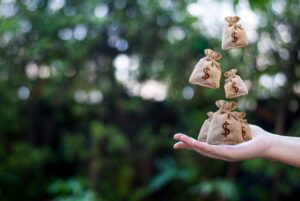Before opening a bank account in Canada, it’s important to think about what you really need from your banking experience. Everyone’s financial situation is different, so understanding your specific needs will help you pick the right account and avoid unnecessary fees or limitations.
Identify your needs and reasons
First, consider what you’ll use your account for. Do you need a chequing account for everyday banking, like paying for groceries, taking out cash, and paying bills? Or are you looking for a savings account to help you set money aside and earn interest? If you want to build your credit history, you might also need a credit card or a secured credit product.
Next, think about the specific services you need. Will you be getting your pay through direct deposit? Do you want to pay bills online, or need to send money internationally? Make a list of services that are essential for your lifestyle.
Finally, look at the features offered by different banks. Some accounts offer unlimited transactions, while others have monthly limits. You might want a no-fee account, access to in-branch service, or a user-friendly mobile app. Other important features include cheques, overdraft protection, and easy online banking.
Taking the time to identify your needs will make it much easier to choose the right bank account for you.
Types of accounts
When opening a bank account in Canada, it’s important to know the main types available. Each type serves a different purpose and offers unique benefits.
Checking accounts are best for daily transactions. They make it easy to pay bills, shop, withdraw cash, and receive direct deposits like your paycheque. Most Canadians use a chequing account for their regular banking needs.
Savings accounts are designed to help you set money aside and earn interest. These accounts usually have limited free transactions each month, encouraging you to save rather than spend. They are a great option if you want your money to grow over time.
Specialty accounts are tailored for specific groups, such as; students, youth, older people, or newcomers to Canada. These accounts often come with lower fees or special features, like free Interac e-Transfers or no minimum balance requirements, making banking more affordable and accessible.
Money management
Fees and costs
Before you decide on a bank account, pay close attention to the fees and costs involved. Many accounts charge a monthly fee, and some limit the number of free transactions you can make. Using ATMs outside your bank’s network can also lead to extra charges, so make a note of that if it’s important to you. Additional costs may apply for features like overdraft protection or receiving paper statements. Online-only banks often have lower or no fees, but usually don’t offer in-person service or physical branches, which may be important to some people.
Interest rates
Interest rates are another key factor in money management. Savings accounts typically pay you interest on your balance, helping your money grow over time. Most checking accounts, however, do not pay interest. Online banks often offer higher interest rates on savings accounts because they have fewer expenses, such as branch maintenance and staff, allowing them to pass the savings on to customers.
Canadian banking landscape
The Big Five banks dominate Canada’s banking sector: Royal Bank of Canada (RBC), Toronto-Dominion Bank (TD), Bank of Nova Scotia (Scotiabank), Bank of Montreal (BMO), and Canadian Imperial Bank of Commerce (CIBC). These banks have branches across the country and offer a full range of financial services, making them the main choice for most Canadians. Sometimes, you’ll also hear about the “Big Six,” which adds National Bank of Canada to the list.
All Big Five banks are among the largest banks in the world, all headquartered in Toronto. They account for the majority of domestic banking activity. Canada is also home to around 35 foreign banks, like HSBC, Citibank, and BNP Paribas. Most foreign banks in Canada must partner with Big Five institutions or get a domestic banking license to operate retail services. Online-only banks typically operate as subsidiaries of the Big Five, such as Tangerine, owned by Scotiabank, and Simplii Financial, owned by CIBC. They rely on their parent banks for banking infrastructure, payment processing, and regulatory compliance. Overall, the banking system is interconnected with the Big Five, helping ensure stability.
Another important part of Canadian banking is the Canada Deposit Insurance Corporation (CDIC). CDIC protects deposits at all member institutions up to $100,000 per insured category or account, giving Canadians peace of mind that their money is safe even if a bank fails.
Things to keep in mind while opening a bank account
Accessibility and convenience
Choose a bank that fits your lifestyle. If you prefer visiting branches, look for one with locations near your home, school, or work. Online banks are available 24/7 and can be managed from anywhere, but may not offer in-person service.
Rights and protections
In Canada, you have the right to open a personal bank account even if you don’t have a job, money to deposit, or a perfect credit history. The only exception is if there’s evidence of fraud or risk. Banks must clearly explain all fees, interest rates, and any changes to your account. You’ll also receive electronic alerts if your balance drops below a certain amount, helping you avoid overdraft fees.
Language for customer support
Most Canadian banks offer services in English and French. Some provide support in other languages, especially in diverse and/or urban areas.
Special packages for newcomers
Many banks offer special offers for newcomers, such as credit cards without a Canadian credit history. Permanent residents often have access to more products, like mortgages or higher credit limits, compared to temporary residents.
Security and fraud prevention
Keep your account details, PIN, and online banking information private to protect yourself from fraud.
Identification requirements
You’ll need to provide two valid pieces of ID, such as a driver’s licence, passport, or PR card. Newcomers can use documents like a study permit or a work visa.
Key takeaways
Choosing the right bank account in Canada starts with understanding your needs—whether for daily transactions, saving money, or building credit. Chequing accounts are ideal for everyday use, while savings accounts help grow your money with interest. Specialty accounts cater to students, older people, and newcomers with tailored features.
Be mindful of fees like monthly charges, ATM costs, and overdraft fees. Online banks often offer lower fees and higher interest rates but lack in-branch services. The Big Five banks stand out in Canada’s banking landscape. Accounts at all these banks are protected by the CDIC, which insures deposits up to $100,000. Keep your rights and protections in mind, and keep your account information secure. Pick the right accounts that can support your needs and financial goals. If you’re currently dealing with debt, you can contact one of our trained credit counsellors for advice – they can help you figure out which debt solution could be the right fit for you.





